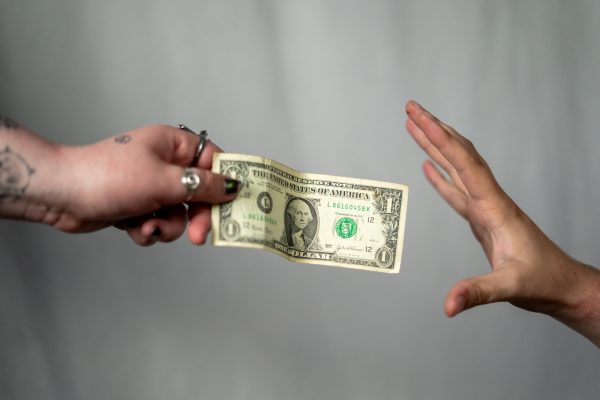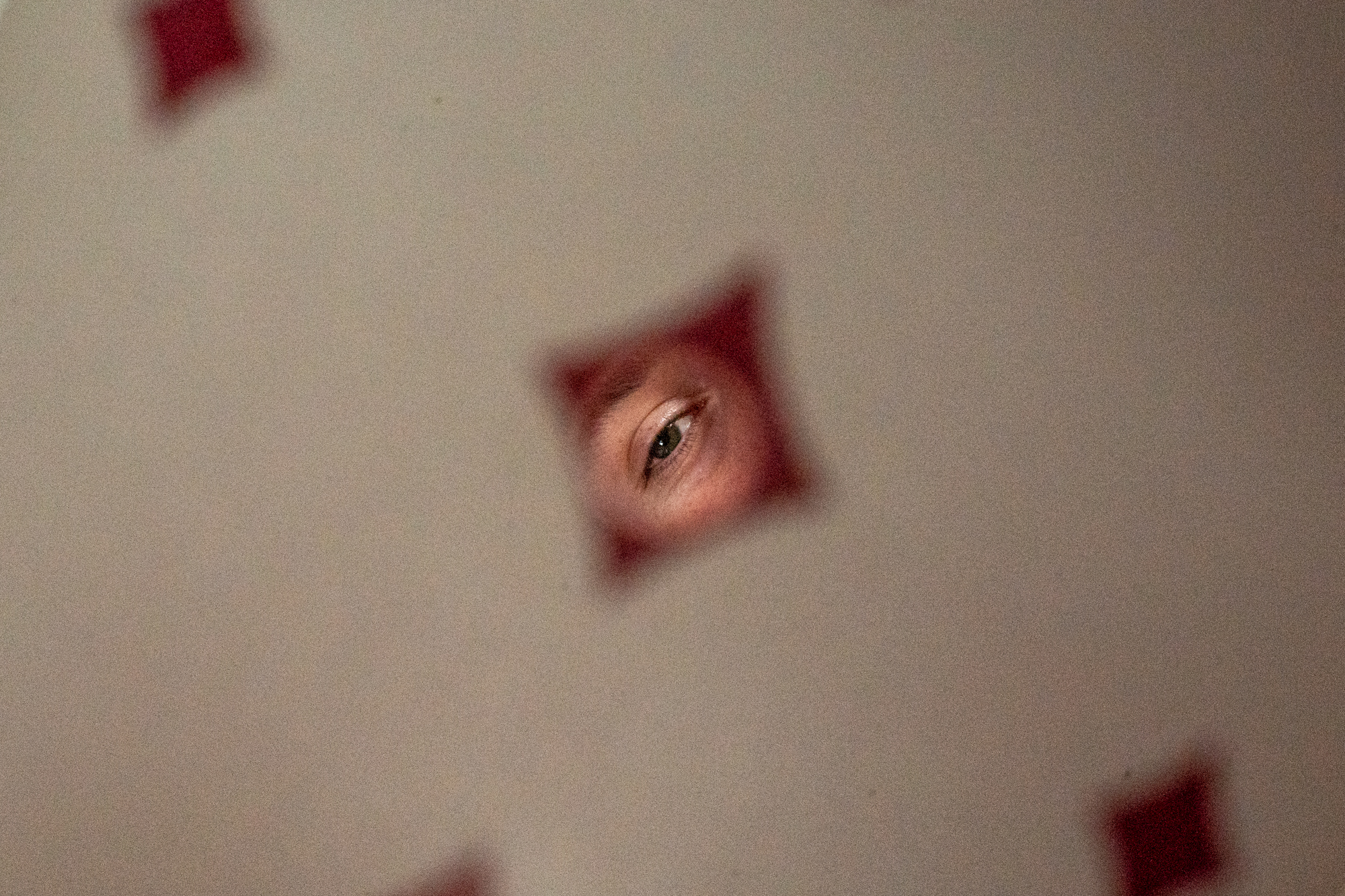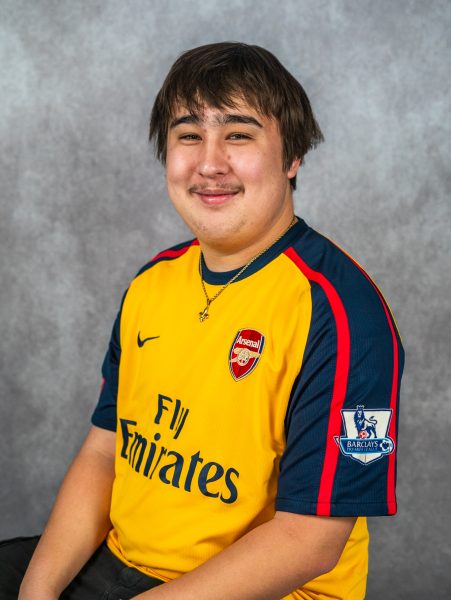The gambler’s trap is well known: The idea that the next spin might be the one.
“Psychologically, it’s really taxing on a human when they go in order to satisfy their dopamine instant-gratification process and end up with shame,” Lionett said.
“I used to work for the Dry Creek Rancheria Band of Pomo Indians, not for the casino, but for their public works department,” said Dan Lionett, president of the Santa Rosa Junior College Students for Recovery club. “I would actually gamble at lunchtime, and I won $26,000. I had been gambling a little bit, but that was where it got its hooks into me.”
Since the federal legalization of online betting in 2018, gambling addiction has seen a meteoric rise, led by the legalization of sports betting and its unregulated advertising. According to a study by JAMA Internal Medicine published in February 2025, total wagers placed in sportsbooks jumped from $4.9 billion in 2017 to $121.1 billion in 2023. Of the 2023 figure, 94% of bets were placed online.
The $10.92 billion in revenue for the gambling industry in 2023 was a 44.5% jump from 2022.
A 2018 study by UC San Diego researchers, in which more than 700,000 gamblers were studied, revealed that 96% of bettors lost money online gambling, while only 4% turned a profit. Therefore, the roughly $110 billion in gambling payouts in 2023 were distributed amongst a massively disproportionate percentage of bettors.
Since 2018, sports and sports betting have become one in the same. Of the 94 teams in the MLB, NBA and NHL, 42.5% are broadcast by FanDuel Sports Network. For 40 major teams, you can’t watch a game without also watching one long gambling ad.

Even if your team isn’t broadcast by FanDuel, you’re still bombarded by countless online betting ads. Take any sports fan who watches games regularly, and most, if not all of them, can list off a number of sports-betting apps. FanDuel, PrizePicks, BetMGM, DraftKings, Underdog Fantasy, Stake, ESPN BET, Bet365 — the list goes on.
“I kind of condone the idea of having Native Americans be able to have casinos for some sort of restitution,” Lionett said. “But once it becomes a corporate money- gaining process, full well knowing that people are going to suffer… for me it’s a little sad.”
Commercials for these betting apps advertise how easy they are to use and that you don’t even need to watch sports to use them. Generally, you’ll see either a group of young people or a celebrity relaxing while casually hitting on a bet. Compare this to cigarette commercials,
which haven’t been legal on TV since 1971.
They lure you in by offering free make-up bets or offering to match your first deposit. Either you lose the first time, and they make money off of that, or the far worse outcome — you win and now they have a regular customer. If that first hit wasn’t enough, the apps will bombard you with notifications about offers and Promos.
On April 6, I received four PrizePicks notifications informing me about a 30% NBA payout boost offer that expired at the end of the day.
On Feb. 25, Congressman Michael Baumgartner introduced the “Providing Responsible Oversight and Transparency and Ensuring Collegiate Trust for Student Athletes Act,” which would ban prop bets in college sports. Prop bets are bets on individual performances or other in-game occurrences not related to the actual win or loss result of a game, like the ones I made on PrizePicks.
The SAFE Bet act, introduced by Rep. Paul Tonko on Sept. 12, 2024, would ban prop bets across all levels of sports. If passed, these bills could start a chain reaction of legislation that would eventually lead to proper regulation of sports betting and online betting, but with how much money pours into the apps as well as the sports leagues, only time will tell.
Casinos will continue to exist as they always have, specifically designed to have no clocks or windows so that you lose track of time in a labyrinth-like layout that disorients and distracts you so you stay and keep gambling.
The term “iPad kid” has become increasingly popular as children have become addicted to the stimulation provided by their device of choice. Slot machines take the same approach, entrancing you with bright lights, flashing colors and high progressive jackpots.
In Shakespeare’s “Hamlet,” Rosencrantz said, “They say an old man is twice the child,” and I say that a senior pawing at slots looks no different from a kid smacking their iPad, except a child isn’t gambling away a pension. While casinos target seniors and welcome shuttle buses of them from retirement homes, the main demographic is 18-to-34-year-old men, according to a report by the National Council on Problem Gambling.
In addition to sports betting, casinos benefit heavily from promotions by social media influencers. Since 2022, popular live streamers like Adin Ross, xQc and Trainwreckstv have signed lucrative deals with the streaming service, Kick.
While technically separate entities, Kick is backed by Stake, an online casino, and both were co-founded by crypto-billionaires Bijan Tehrani and Ed Craven.
On Kick, creators can livestream themselves making high-stake bets and farming clips of massive wins or losses on online slots, and in the process, glorify gambling to their young audiences. Additionally, it’s widely believed that Stake gives the streamers fake money to gamble with.

The key to all of these tactics by the apps, casinos and crypto-douchebags is that they only have to work once. Once the rush of that first big win hits, it’s incredibly easy to get hooked. My recommendation if you’re thinking about heading to the casino? Go — just don’t gamble.
Cheap drinks and people-watching makes for an excellent night out; you might just see a man shit himself. Just make sure to do laundry when you get home, both for the cigarette smell and whatever other wonders you witness.
And for those broke college students looking for ways to make more money like myself? I don’t have the answer, but I know gambling isn’t it.
“I lost a lot of money because I was looking for that elusive, ‘hands raised over the head, I won’ thing,” Lionett said. “Which happens probably less than 10% of the time. I would hope [young people] recognize that they’ve grasped onto a coping mechanism.”
Betting app or casino commercials always throw in a quick “please gamble responsibly” at the end, so I will leave you with an alternative: Don’t do it. It won’t be worth it. If you’re newly 21, just go to a bar instead, but do that responsibly too.
Read part 1: “THIS life hack could pay for your college tuition.”






